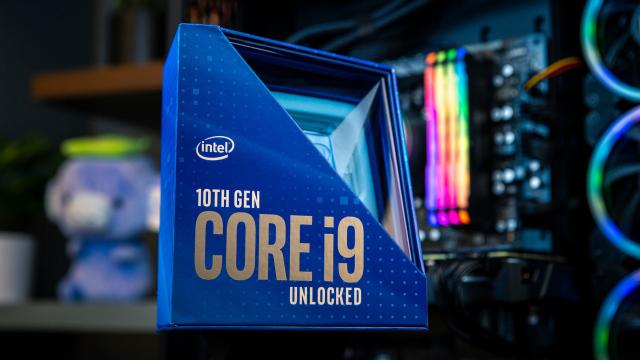Intel announced this morning that its 11th-gen desktop processors, code-named Rocket Lake, will release sometime in the first quarter of 2021. But unlike the 10th generation, this generation will actually provide support for PCIe 4.0. Not much more information was provided beyond that, although Intel did say it would reveal more in the coming months.
The current release window will mark only a year since Intel released its 10th-gen desktop processors (Comet Lake) along with a new motherboard socket and chipset. If you upgraded last year…ouch, I’m sorry. But at least those motherboards will not only support the upcoming Rocket Lake processors, but they’re already equipped with PCIe 4.0 support. Intel had trouble getting its 400-series chipset to work with PCIe 4.0, so it was an issue on the Comet Lake side rather than the motherboard side.
Additionally, it’s likely Intel will release a new chipset with its next-generation desktop processors — which will also mean even more new motherboards. (But again, the 400-series motherboards will work with Rocket Lake. All they’ll need is an update.) Z590, H570, B560, and H510 chipsets are rumoured to arrive at the same time next year.
[referenced id=”1222543″ url=”https://gizmodo.com.au/2020/06/intels-high-end-10th-gen-desktop-processors-have-hit-the-14nm-limit/” thumb=”https://gizmodo.com.au/wp-content/uploads/2020/06/12/iw2x8upqn2l3fjuxe7br-300×169.jpg” title=”Intel’s High-End 10th-Gen Desktop Processors Have Hit the 14nm Limit” excerpt=”How much can Intel squeeze out of its 14nm architecture? A lot, surprisingly, especially since things didn’t go as planned for its 10nm process. After six years on the same process, and five on the same architecture, this latest round of desktop processors still manages to make a few changes,…”]
There’s also still some questions about what architecture Rocket Lake will be based on. Intel has held onto its 14nm process node for several years, largely because of its issues transitioning over to the 10nm process. It’s 11th-gen mobile processor, Tiger Lake, is based on the 10nm process, but that doesn’t necessarily mean Rocket Lake will be too. Rumours point to it being based on the same 10nm process, but backported to the 14nm process. If true, that could be an interesting way to make these upcoming CPUs better than the 10th-gen. There’s only so much Intel can get out of its 14nm design at this point, and we saw it hitting its limits with the higher-end CPUs when we reviewed them back in June 2020.
Rocket Lake might also be based on the chiplet design of its 11th-gen mobile processors — meaning it might have multiple dies and layers of electronics packed into a single chip package. If that’s the case, then it’s possible some 11th-gen desktop processors will come with Intel’s brand new integrated Iris Xe graphics, too. All that’s left to speculate is how fast these new desktop CPUs are going to be. Hopefully, we’ll get the full rundown before the end of the year.
In the meantime, AMD is expected to reveal more details tomorrow about its next generation of desktop processors, the Ryzen 4000-series, which will be based on its Zen 3 architecture. Zen 2, which the 3000-series CPUs are based on, made the foundation for an incredible generation of processors, but Zen 3 is expected to do much, much more.
